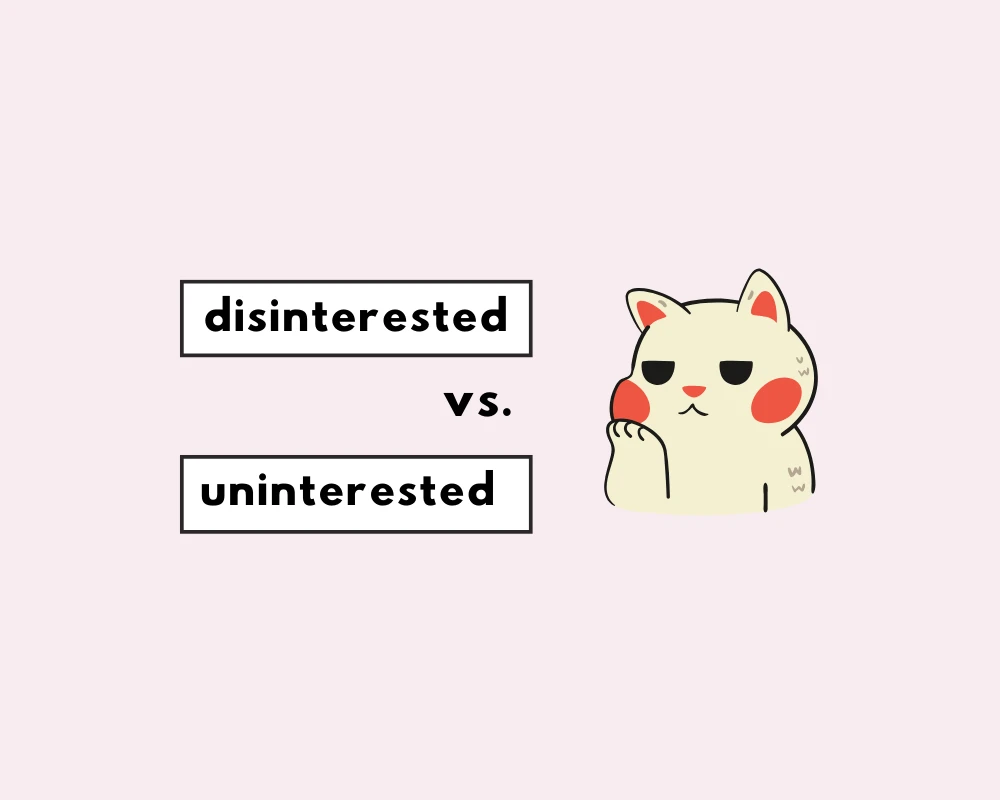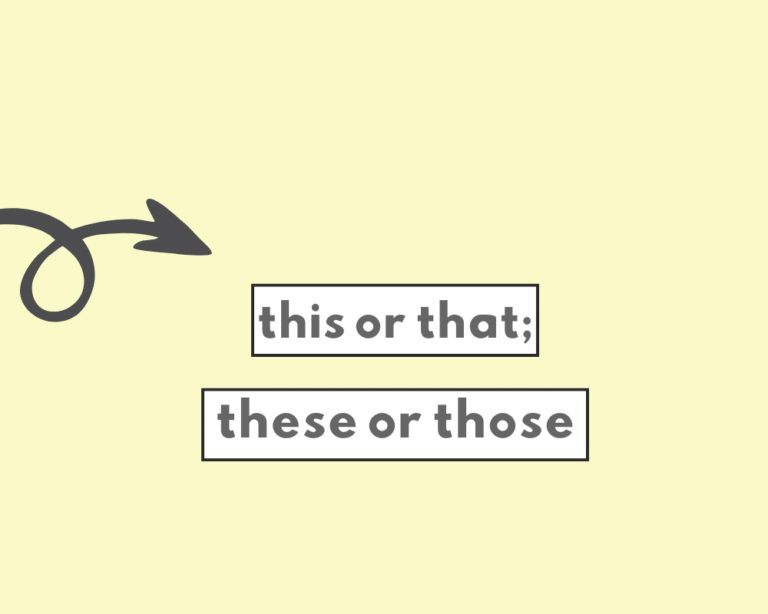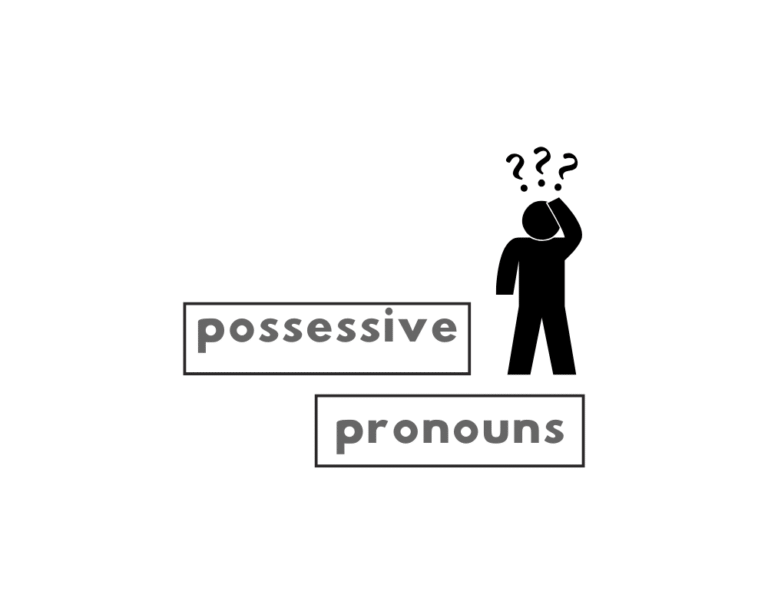Disinterested vs. uninterested
Disinterested and uninterested are two words, (which are adjectives), which people sometimes conflate in conversation and writing.
The judge was disinterested in the case.
She seemed uninterested in my story.
He was disinterested to hear about my day.
I am uninterested in being a judge.
Are they the same, and are they interchangeable with one another? Let’s find out.
When to use disinterested vs. uninterested
Disinterested and uninterested are both adjectives:
- Disinterested means “impartial” or “indifferent” (i.e., not having a vested interest).
- Uninterested means “not interested in”.
| Examples: “disinterested” in a sentence | Example: “uninterested” in a sentence |
| Let a disinterested person judge our dispute. | This person is obviously uninterested in our dispute. |
Meaning of disinterested & uninterested
To be disinterested means to “not having the mind or feelings engaged“. Or, to be uninfluenced by personal feelings, or by the chance of getting some advantage for yourself. (E.g., her advice appeared to be disinterested. I was merely a disinterested spectator in the whole affair.
“Disinterested”, used in sentences
| Examples: “disinterested” used in sentences |
| A solicitor can give you disinterested advice.
Her advice appeared to be disinterested. I was merely a disinterested spectator in the whole affair. her father was so disinterested in her progress that he only visited the school once |
“Uninterested”, used in sentences
| Examples: “uninterested” in sentences | |
| He is completely uninterested in politics.
He was totally uninterested in sport. She seemed cold and uninterested. She was completely uninterested in her sister’s career. |
Think “disinterested” means your personal interest is *dis*connected (impartial). “Uninterested” means you are simply “not” interested.
Similar words
| Word | Similar words |
|---|---|
| Disinterested | impartial, indifferent, unbiased, objective, separate from, nonchalant, apathetic, uninterested, unconcerned, insouciant, casual, uncurious |
| Uninterested | apathetic, disinterested, indifferent, listless, unconcerned, uninvolved, weary |
Etymology of “disinterested”/”uninterested”
Etymology of uninterested:
|
1640s, “unbiased,” from un- (1) “not” + past participle of interest (v.). It later meant “disinterested” (1660s); sense of “unconcerned, indifferent” is recorded from 1771. This is the correct word for what often is miscalled disinterested. |
Origin of disinterested:
|
1610s, “unconcerned” (the sense that now would go with uninterested), from dis- “opposite of” + interested. The sense of “impartial” originally was in disinteressed (c. 1600), from Old French desinteresse, and subsequently passed to uninterested. The modern sense of disinterested, “impartial, free from self-interest or personal bias, acting from unselfish motives,“ is attested by 1650s. |
Learn other commonly confused words
- “Insouciant.” Merriam-Webster.com Thesaurus, Merriam-Webster, https://www.merriam-webster.com/thesaurus/insouciant. Accessed 28 Feb. 2024.
- Harper, Douglas. “Etymology of disinterested.” Online Etymology Dictionary, etymonline.com/word/disinterested. Accessed 29 February, 2024.
- Harper, Douglas. “Etymology of uninterested.” Online Etymology Dictionary, etymonline.com/word/uninterested. Accessed 29 February, 2024.
Worksheet
According to the blog post, what is the primary meaning of “disinterested”?
Which sentence uses “disinterested” INCORRECTLY, according to the blog post’s examples?
What does the blog post state is the meaning of “uninterested”?
Are “disinterested” and “uninterested” interchangeable, according to the blog post?
The study tip suggests thinking of “disinterested” as your personal interest being:
A judge must be in the case to ensure fairness.
She seemed completely in the movie; she kept checking her phone.
He gave me advice because he had no personal stake in the outcome.
The students were in the lecture because the topic was boring.
As a spectator, I could observe the game without any emotional attachment.
FAQs
Are ‘disinterested’ and ‘uninterested’ interchangeable?
+
What does ‘disinterested’ mean?
+
What does ‘uninterested’ mean?
+
Give an example of correct ‘disinterested’.
+
Give an example of correct ‘uninterested’.
+
Yash, D. "Disinterested vs. Uninterested (Are They Interchangeable?)." Grammarflex, Jun 26, 2025, https://www.grammarflex.com/disinterested-vs-uninterested-are-they-interchangeable/.
- The Elements of Style, Strunk & White (always).










